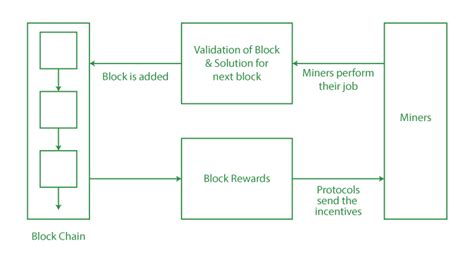The Block Rewards Conundrum: Understanding the Incentivization of Cryptocurrency Mining
The rise of cryptocurrency has transformed the way we think about money and transactions. With the proliferation of decentralized networks, such as Bitcoin, Ethereum, and others, a new class of digital assets was created – cryptocurrencies. Among these, many users are drawn to the potential for high returns through mining, a process that involves solving complex mathematical problems to validate transactions on a blockchain.
However, one aspect of cryptocurrency mining is often overlooked: block rewards. To understand why block rewards matter, let’s dive into the world of cryptography and how it operates within decentralized networks.
What is Cryptography?
Cryptography is the study of code-based encryption techniques used for secure data transmission. It involves complex algorithms and mathematical problems that make it virtually impossible to decipher or reverse-engineer the encrypted information without the decryption key. This fundamental concept underlies many blockchain technologies, including cryptocurrencies.
The Proof-of-Work (PoW) Network: A Cryptographic Framework
Blockchains are built on top of a proof-of-work network, which is designed to validate transactions and create new blocks in a secure manner. The process involves miners competing to solve a complex mathematical puzzle to create a block, which must be solved within a time limit known as the block target.
The Block Rewards System: Incentivizing Miners
To incentivize miners to participate in the network and maintain its security, cryptocurrency networks often offer block rewards. These rewards are designed to provide a financial incentive for mining operations, encouraging them to invest their computing power, electricity, or other resources into validating transactions.
Here’s how it works:
- Block creation: Miners compete to solve a mathematical puzzle to create a new block.
- Block reward: The first miner to solve the puzzle gets to add the block to the blockchain and validate its contents. As a result of their efforts, they receive newly minted cryptocurrency (or, in some cases, tokens) as a reward for their work.
Types of Block Rewards
There are different types of block rewards, each with its own set of conditions:
- Transaction fees:
Miners can earn transaction fees from the transactions they validate on the blockchain. This is often used to incentivize participation and maintain network security.
- Mining pool payments: Some networks offer mining pool payments for participating miners. These payments are typically made in cryptocurrency or other assets tied to the specific network.
- Hash rate bonuses: Miners may be rewarded with a bonus payment based on their hashing power (the amount of computational energy they provide) for solving puzzles faster than others.
Why Block Rewards Matter
Block rewards play a crucial role in maintaining the integrity and security of cryptocurrency networks. By incentivizing miners to participate, these networks:
- Secure transactions: Miners verify transactions and create new blocks, ensuring that the blockchain remains secure.
- Maintain decentralization: The decentralized nature of blockchain technology relies on the collective efforts of miners working together to validate transactions.
- Attract investment: Block rewards can attract investors who want to participate in the network without directly owning cryptocurrencies.
Challenges and Controversies
While block rewards are essential for cryptocurrency networks, there are ongoing debates about their legitimacy. Some argue that block rewards create an unfair advantage, as miners with more computational power or access to better hardware may receive disproportionately large rewards.

